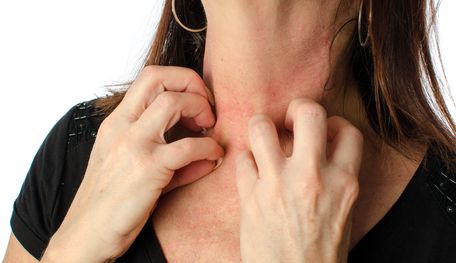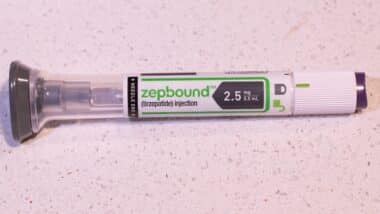 Dilantin (phenytoin) is an anticonvulsant drug used to control grand mal (tonic clonic) and complex partial (temporal lobe) seizure activity.
Dilantin (phenytoin) is an anticonvulsant drug used to control grand mal (tonic clonic) and complex partial (temporal lobe) seizure activity.
It is also used to treat seizures during neurosurgery or seizures that may occur after surgery.
As with any medication, Dilantin has a number of side effects associated with its use. Some common Dilantin side effects include constipation, dizziness, drowsiness, insomnia, loss of balance, headache, nausea, nervousness, tremors, vomiting, swollen gums, slurred speech, or rash.
Dilantin SJS Rash
While patients experiencing a mild rash when using Dilantin may have only minor discomfort, the drug may also cause a very serious rash with life-threatening consequences.
This rash and its associated symptoms is known as Stevens Johnson Syndrome, or SJS. SJS is an allergic reaction, most commonly to a medication. In rare cases, SJS may be caused by a reaction to an infection.
Oftentimes, SJS begin with symptoms associated with the flu. Fever, cough, sore throat, burning eyes, and aches often precede the skin manifestations. Once the rash manifests, it is often purple or red with blisters and spreads to multiple areas of the body.
In addition to affecting the skin, SJS Dilantin rash may also affect the mucous membranes of the body. This includes areas inside the eyes, nose, anus and genital areas. Tongue swelling and pain is also common.
As the SJS rash spreads, layers of skin begin to die and subsequently peel or flake off. The rash can affect small parts of the body or nearly the entire body can be affected.
In general, Stevens Johnson Syndrome affects 30 percent or less of the skin. A more serious related condition is called Toxic Epidermal Necrolysis (TEN). This condition affects over 30 percent of the skin on an individual’s body.
SJS Treatment
Both SJS and TEN are considered life threatening emergency situations. Individuals with SJS must be hospitalized and are often treated in the intensive care unit or in the burn center of a hospital.
The patient must immediately stop taking the drug that caused SJS, but beyond that SJS can generally not be treated. Instead, doctors focus on symptom management. Steroids may be used to decrease inflammation, pain medications alleviate pain and discomfort, and intravenous fluids keep patients well hydrated.
It may take weeks or months for Stevens Johnson Syndrome symptoms to subside. The average reported mortality rate of SJS is about 5 percent, while the rate rises for TEN, to a 25-35 percent mortality rate.
Further complications of SJS
The damage done from Stevens Johnson Syndrome is not limited to the skin and mucous membranes. Additional complications of Stevens Johnson Syndrome include:
- Eye problems, including vision loss or blindness
- Internal organ damage
- Permanent skin damage
- Secondary skin infection
- Sepsis (often due to secondary skin infection)
Dilantin SJS Lawsuit Information
If you or a loved one developed Stevens Johnson Syndrome following the use of Dilantin or any other medication, contact an experienced attorney to determine whether you are eligible to bring a Dilantin SJS lawsuit.
Do YOU have a legal claim? Fill out the form on this page now for a free, immediate, and confidential case evaluation. The SJS attorneys who work with Top Class Actions will contact you if you qualify to let you know if an individual lawsuit or Dilantin class action lawsuit is best for you. [In general, Dilantin lawsuits are filed individually by each plaintiff and are not class actions.] Hurry — statutes of limitations may apply.
ATTORNEY ADVERTISING
Top Class Actions is a Proud Member of the American Bar Association
LEGAL INFORMATION IS NOT LEGAL ADVICE
Top Class Actions Legal Statement
©2008 – 2025 Top Class Actions® LLC
Various Trademarks held by their respective owners
This website is not intended for viewing or usage by European Union citizens.
Get Help – It’s Free
Help for Victims of Stevens Johnson Syndrome
If you or a loved one were diagnosed with Stevens Johnson Syndrome (SJS) or toxic epidermal necrolysis (TEN) after taking a prescribed or over-the-counter medication, you may be eligible to take legal action against the drug’s manufacturer. Filing an SJS lawsuit or class action lawsuit may help you obtain compensation for medical bills, pain and suffering, and other damages. Obtain a free and confidential review of your case by filling out the form below.
An attorney will contact you if you qualify to discuss the details of your potential case at no charge to you.
Oops! We could not locate your form.












